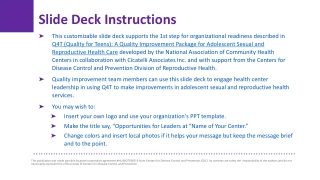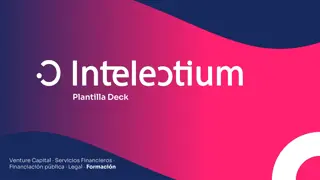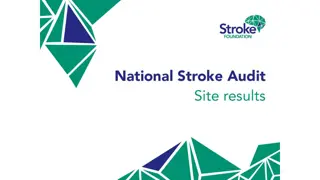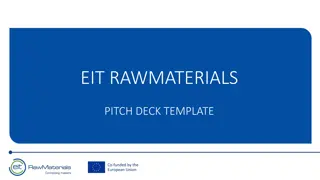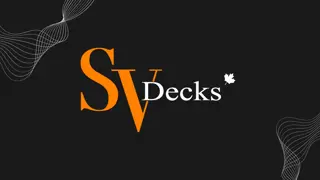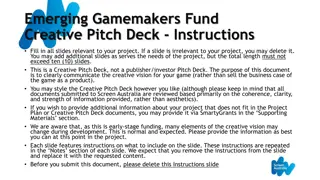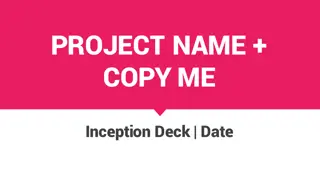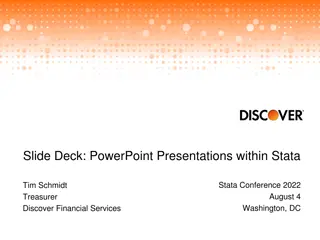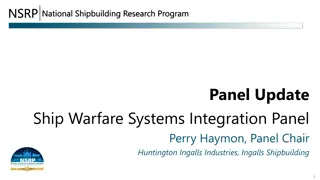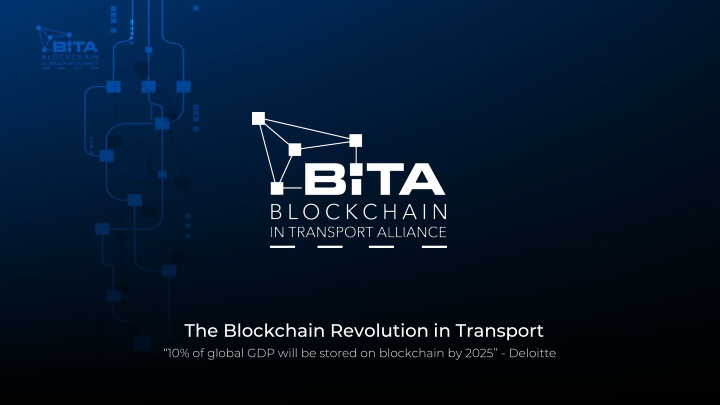
Blockchain Revolution in Transport: BiTA Alliance & Industry Standards
Explore the impact of blockchain in transport with the Blockchain in Transport Alliance (BiTA) leading the way in setting industry standards. Learn how organizations like the Internet Society and the WEF emphasize the importance of standards in technological advancement and governance. Discover how BiTA is shaping the future of the trucking industry through collaboration and innovation.
Download Presentation

Please find below an Image/Link to download the presentation.
The content on the website is provided AS IS for your information and personal use only. It may not be sold, licensed, or shared on other websites without obtaining consent from the author. If you encounter any issues during the download, it is possible that the publisher has removed the file from their server.
You are allowed to download the files provided on this website for personal or commercial use, subject to the condition that they are used lawfully. All files are the property of their respective owners.
The content on the website is provided AS IS for your information and personal use only. It may not be sold, licensed, or shared on other websites without obtaining consent from the author.
E N D
Presentation Transcript
The Blockchain Revolution in Transport 10% of global GDP will be stored on blockchain by 2025 - Deloitte
What is the Blockchain in Transport Alliance? The Blockchain in Transport Alliance (or BiTA) is a consortium of the foremost leaders in the trucking industry forging a path towards industry standards in blockchain use. All companies within BiTA share a unified mission of developing a standards framework, educating the market on blockchain applications, and encouraging the use of said applications through exemplary implementation.
Exhibit A Creates and encourages active implementation of standards like TCP/IP, used by every internet connected device The Internet Society played a huge role in making the internet a household commodity by employing the best minds in the industry Without a standards organization in place, the internet would be a fragmented unstable mess Founded in 1992 Home to four standards setting bodies: the Internet Engineering Task Force, the Internet Architecture Board, the Internet Engineering Steering Group, and the Internet Research Task Force
Exhibit B WEF encouraged a framework for development, looking at the development of the internet and other technologies: 1. Stewardship- not regulation 2. Create industry-specific standards 3. Develop knowledge networks for use applications 4. Create delivery networks 5. Implement policies that encourage cooperation 6. Ensure advocacy 7. Create a network of institutions World Economic Forum identified Blockchain technology as having transformative impact on global social and economic development.
Exhibit B 1. The internet is a network of similar networks. The blockchain is a ledger of different and sometimes competing ledgers Decentralized doesn t mean disorganized Without governance, invisible powers could emerge The need for industry standards as soon as possible Premature anointment of any protocol as an industry standard 2. WEF Governance Considerations: 3. 4. 5.
Why BiTA? The Blockchain in Transport Alliance is the first of its kind; a standards organization by the trucking industry FOR the trucking industry. Members of BiTA come from every facet of the industry: tech vendors, OEMs, tier-1 suppliers, consultants, banks, carriers, shippers, and brokers. Members of BiTA know that blockchain is the way of the future, an industry changing technology that will revolutionize the way people do business. BiTA wants to usher in this change in a uniform way that will benefit the entire industry.
Preparing for Blockchain Explore Engage Experiment Understand Blockchain Use Cases: 1. Performance History - vehicle maintenance, quality assurance 2. Dynamic Optimization - capacity monitoring 3. Payments and Pricing - fraud detection, theft prevention
Use Cases Performance History Performance history through the blockchain framework can allow parties to see solid and definitive evidence of past performance in all the relevant metrics. This removes the trust aspect from all deals. Vehicle Maintenance Blockchain allows for item by item records of vehicle repairs. Instead of one person holding an extensive repair history, it is held within the blockchain. The history can now effectively move with the equipment for anyone to see. Quality Assurance Thanks to the distributed nature of blockchain, everyone involved in the transaction has access to all points. Taking photos and evaluating freight at pick-up and delivery locations reduces the likelihood of unsubstantiated disputes.
Use Cases Compliance Blockchain and ELDs are a natural pair. ELDs can send a near endless stream of data to the blockchain in real-time. Pairing this information with traffic data, weather data, etc. allows for up to the minute rerouting. Capacity Monitoring In trucking, available capacity can change throughout the day. The blockchain can provide the necessary transparency to know when and where capacity opens up, allowing participants to take advantage of shifts in demand.
Use Cases Payments and Pricing Payment processing and settlement is all secure on the blockchain, and transaction information is easily accessible. By keeping detailed historic payment records, people can use more data than ever to determine rates. Fraud Detection Every transaction that takes place on the blockchain is visible to everyone on the network, and nothing can be removed. This transparency removes many points where fraud occurs and eliminates double brokering. Theft Prevention The blockchain can contain detailed information and rules. These can even include ID pictures and rules for the pick-up and delivery of the freight, increasing security and reducing the possibility of theft.
In a nutshell... Members of BiTA understand that blockchain isn t just an industry disruptor, it s technology that will revolutionize the way people do business. Blockchain offers the opportunity to solve for transparency and create efficiencies across the industry, and BiTA wants to usher in this change in a uniform way that will benefit the entire industry. All companies within BiTA share a unified mission of developing a standards framework, educating the market on blockchain applications, and encouraging the use of said applications through exemplary implementation. In addition to establishing market standards, the Organization is focused on engaging with the industry and providing educational resources to ensure the full potential of the benefits of blockchain technology is carried through. BiTA standards will address smart contracts, freight payments, asset maintenance and ownership history, chain of custody of freight, and other issues facing the industry.


